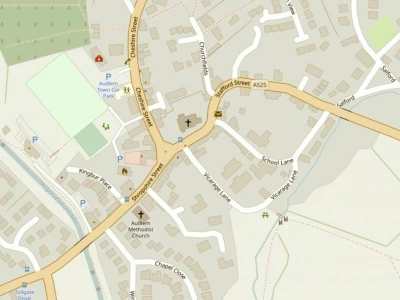







The NHS is born
Calls for a "unified medical service" can be dated back to the Minority Report of the Royal Commission on the Poor Law in 1909, but it was following the 1942 Beveridge Report's recommendation to create "comprehensive health and rehabilitation services for prevention and cure of disease" that cross-party consensus emerged on introducing a National Health Service of some description.
When Clement Attlee's Labour Party won the 1945 election he appointed Aneurin Bevan (pictured here) as Health Minister. Bevan then embarked upon what the official historian of the NHS, Charles Webster, called an "audacious campaign" to take charge of the form the NHS finally took.
The NHS was born out of the ideal that good healthcare should be available to all, regardless of wealth. Although being freely accessible regardless of wealth maintained Henry Willink's principle of free healthcare for all, Conservative MPs were in favour of maintaining local administration of the NHS through existing arrangements with local authorities fearing that an NHS which owned hospitals on a national scale would lose the personal relationship between doctor and patient.
Conservative MPs voted in favour of their amendment to Bevan's Bill to maintain local control and ownership of hospitals and against Bevan's plan for national ownership of all hospitals. The Labour government defeated Conservative amendments and went ahead with the NHS as it remains today; a single large national organisation (with devolved equivalents) which forced the transfer of ownership of hospitals from local authorities and charities to the new NHS. Bevan's principle of ownership with no private sector involvement has since been diluted, with later Labour governments implementing large scale financing arrangements with private builders in private finance initiatives and joint ventures.
At its launch by Bevan on 5 July 1948 it had at its heart three core principles: That it meet the needs of everyone, that it be free at the point of delivery, and that it be based on clinical need, not ability to pay.
Three years after the founding of the NHS, Bevan resigned from the Labour government in opposition to the introduction of charges for the provision of dentures and glasses. The following year, Winston Churchill's Conservative government introduced prescription charges. These charges were the first of many controversies over reforms to the NHS throughout its history.
From its earliest days, the cultural history of the NHS has shown its place in British society reflected and debated in film, TV, cartoons and literature. The NHS had a prominent slot during the 2012 London Summer Olympics opening ceremony directed by Danny Boyle, being described as "the institution which more than any other unites our nation".
This article is from our news archive. As a result pictures or videos originally associated with it may have been removed and some of the content may no longer be accurate or relevant.
Get In Touch
AudlemOnline is powered by our active community.
Please send us your news and views using the button below:
Email: editor@audlem.org


